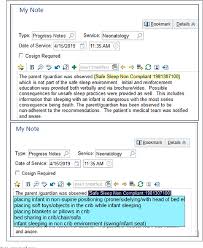GERD, or gastroesophageal reflux disease, is a common condition that affects the digestive system. It occurs when stomach acid flows back into the esophagus, causing symptoms like heartburn, regurgitation, and chest pain. Managing GERD often involves lifestyle changes, dietary modifications, and medication. One potential supplement that has gained attention for its role in managing GERD symptoms is melatonin.
Melatonin is a hormone produced by the pineal gland in the brain that regulates sleep-wake cycles. In addition to its role in promoting sleep, melatonin also has antioxidant and anti-inflammatory properties that may be beneficial for individuals with GERD.
Research suggests that melatonin may help reduce the production of stomach acid and protect the lining of the esophagus from damage caused by refluxed acid. By promoting relaxation of the lower esophageal sphincter (the muscle that controls the flow of food from the esophagus into the stomach) and reducing inflammation in the digestive tract, melatonin has shown promise in alleviating symptoms associated with GERD.
It’s important to note that while melatonin shows potential benefits for managing GERD symptoms, more research is needed to fully understand its effectiveness and safety profile for this specific use. As with any supplement or medication, it’s essential to consult with a healthcare provider before incorporating melatonin into your treatment plan for GERD.
In conclusion, melatonin may offer a natural approach to managing GERD by reducing stomach acid production, protecting the esophageal lining, and promoting relaxation of the lower esophageal sphincter. If you are considering using melatonin as part of your GERD management strategy, be sure to discuss it with your healthcare provider to determine if it’s a suitable option for you.
9 Benefits of Melatonin for GERD: Natural Relief and Protection
- May reduce stomach acid production
- May protect the esophageal lining
- May help relax the lower esophageal sphincter
- Has antioxidant properties
- Has anti-inflammatory properties
- Natural hormone produced by the body
- Can aid in promoting better sleep quality
- Potential to alleviate GERD symptoms like heartburn and regurgitation
- Minimal side effects reported
Considerations and Concerns: Melatonin’s Role and Risks in GERD Management
- Limited scientific evidence on the effectiveness of melatonin specifically for GERD treatment.
- Potential side effects such as drowsiness, headache, or nausea may occur with melatonin use.
- Interactions with other medications or health conditions may impact the safety and efficacy of using melatonin for GERD.
May reduce stomach acid production
Melatonin’s potential to reduce stomach acid production is a significant benefit for individuals with GERD. By regulating the secretion of gastric acid, melatonin can help alleviate symptoms such as heartburn and acid reflux that are common in GERD. This mechanism of action not only provides relief from discomfort but also helps protect the esophageal lining from damage caused by excess acid, contributing to improved digestive health and overall well-being.
May protect the esophageal lining
Melatonin’s potential to protect the esophageal lining is a significant benefit for individuals with GERD. By reducing inflammation and promoting healing in the esophagus, melatonin may help prevent damage caused by refluxed stomach acid. This protective effect can contribute to symptom relief and improved overall esophageal health in individuals dealing with GERD.
May help relax the lower esophageal sphincter
Melatonin may offer a beneficial effect for individuals with GERD by potentially helping to relax the lower esophageal sphincter. The lower esophageal sphincter is a muscle that plays a crucial role in controlling the flow of food from the esophagus into the stomach. By promoting relaxation of this muscle, melatonin may help reduce the likelihood of stomach acid flowing back into the esophagus, which is a common trigger for GERD symptoms like heartburn and regurgitation. This potential benefit of melatonin in relaxing the lower esophageal sphincter could contribute to improved management of GERD symptoms and overall digestive health.
Has antioxidant properties
Melatonin’s antioxidant properties offer a promising advantage for individuals with GERD. By acting as an antioxidant, melatonin can help protect the esophageal lining from damage caused by refluxed stomach acid. This protective effect may contribute to reducing inflammation and promoting overall digestive health in individuals dealing with GERD. Incorporating melatonin into a comprehensive treatment plan for GERD may provide additional support in managing symptoms and improving the quality of life for those affected by this condition.
Has anti-inflammatory properties
Melatonin’s anti-inflammatory properties make it a promising supplement for individuals with GERD. By reducing inflammation in the digestive tract, melatonin can help alleviate symptoms associated with gastroesophageal reflux disease. Inflammation plays a significant role in the development and progression of GERD, and the ability of melatonin to combat this inflammatory response may contribute to its effectiveness in managing the condition. Incorporating melatonin into a comprehensive treatment plan for GERD may offer relief by targeting inflammation and promoting overall digestive health.
Natural hormone produced by the body
Melatonin’s effectiveness for managing GERD is enhanced by the fact that it is a natural hormone produced by the body. As a hormone that regulates sleep-wake cycles, melatonin is already familiar to the body’s systems and processes. This natural origin can make melatonin a well-tolerated supplement for individuals with GERD, potentially reducing the risk of adverse reactions or side effects commonly associated with synthetic medications. By leveraging the body’s own production of melatonin, individuals may experience a more gentle and harmonious approach to addressing GERD symptoms, aligning with the principles of holistic health and well-being.
Can aid in promoting better sleep quality
Melatonin, a hormone known for regulating sleep-wake cycles, can also aid in promoting better sleep quality for individuals with GERD. By improving sleep patterns, melatonin may help reduce nighttime symptoms of GERD, such as heartburn and discomfort, allowing individuals to rest more comfortably. Better sleep quality is essential for overall health and well-being, and the potential of melatonin to enhance sleep can contribute to a more restful night’s rest for those managing GERD symptoms.
Potential to alleviate GERD symptoms like heartburn and regurgitation
Melatonin has shown promising potential in alleviating GERD symptoms such as heartburn and regurgitation. By reducing stomach acid production, protecting the esophageal lining, and promoting relaxation of the lower esophageal sphincter, melatonin may offer a natural and effective approach to managing these uncomfortable and disruptive symptoms associated with gastroesophageal reflux disease. Further research is needed to fully understand the extent of melatonin’s benefits for GERD, but its antioxidant and anti-inflammatory properties make it a compelling option for individuals seeking relief from these common symptoms.
Minimal side effects reported
One significant advantage of using melatonin for GERD is the minimal side effects reported by individuals who have incorporated it into their treatment regimen. Unlike some medications that may come with unwanted side effects, melatonin is generally well-tolerated and considered safe for most people. This makes it a favorable option for those seeking a natural approach to managing GERD symptoms without the concern of experiencing adverse reactions. However, it’s important to consult with a healthcare provider before starting any new supplement, including melatonin, to ensure it is appropriate for your individual health needs and circumstances.
Limited scientific evidence on the effectiveness of melatonin specifically for GERD treatment.
One significant drawback of using melatonin for GERD treatment is the limited scientific evidence supporting its effectiveness specifically for this condition. While some studies have shown promising results in terms of melatonin’s potential benefits for managing GERD symptoms, the research in this area is still relatively sparse. Without robust clinical data to conclusively demonstrate the efficacy of melatonin in treating GERD, there remains uncertainty about its true impact on this particular digestive disorder. As a result, individuals considering melatonin as a therapeutic option for GERD should approach its use with caution and consult with healthcare professionals to make informed decisions about their treatment plan.
Potential side effects such as drowsiness, headache, or nausea may occur with melatonin use.
Potential side effects such as drowsiness, headache, or nausea may occur with melatonin use, which can be a concern for individuals managing GERD. While melatonin shows promise in alleviating symptoms associated with GERD, the possibility of experiencing these side effects may impact one’s daily functioning and overall well-being. It is important for individuals considering melatonin as a supplement for GERD to weigh the potential benefits against the risk of adverse reactions and consult with a healthcare provider to determine the most suitable treatment approach for their condition.
Interactions with other medications or health conditions may impact the safety and efficacy of using melatonin for GERD.
Interactions with other medications or health conditions may pose a significant con when considering the use of melatonin for GERD. Melatonin has the potential to interact with certain medications, such as blood thinners, immunosuppressants, and sedatives, which could impact their effectiveness or lead to adverse effects. Additionally, individuals with certain health conditions, such as autoimmune disorders or epilepsy, may need to exercise caution when using melatonin due to its effects on the immune system and central nervous system. It is crucial to consult with a healthcare provider before incorporating melatonin into a treatment plan for GERD to ensure safety and efficacy while considering potential interactions and contraindications.


